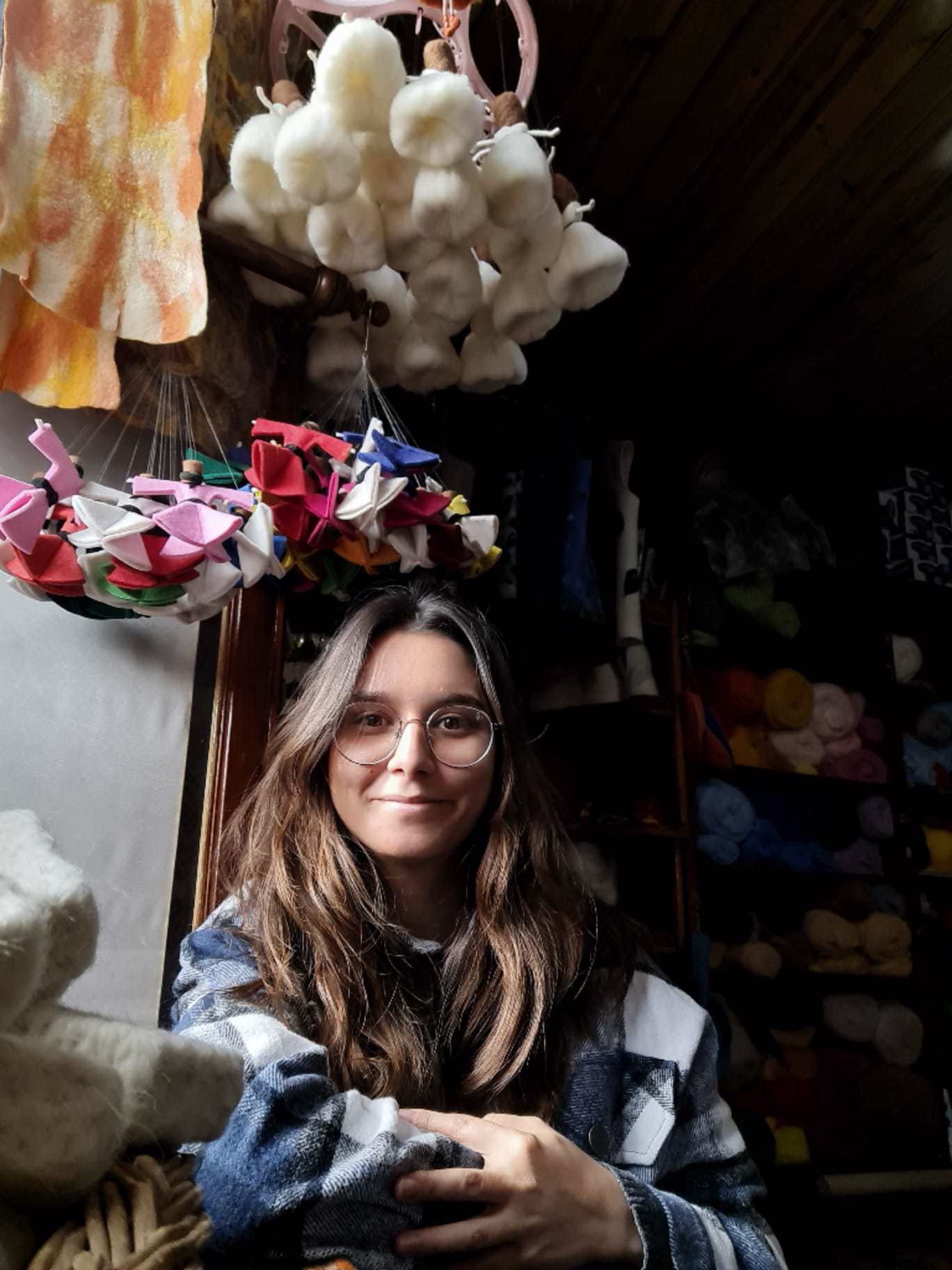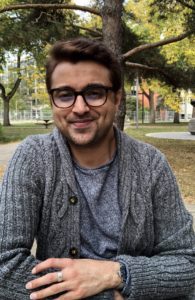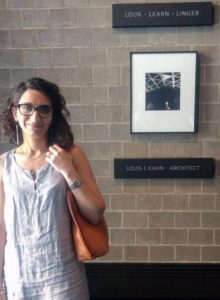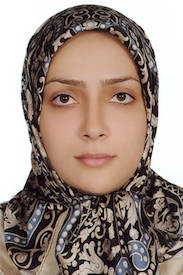The Khalida Quraishi Memorial Graduate Award in Islamic Studies
Warm Congratulations to the Recipient of the Khalida Quraishi Memorial Graduate Award in Islamic Studies in 2025
Amirhossein Firuzkohi
PhD student, Modern Languages and Cultural Studies
His doctoral research is a comparative ethnographic analysis of protest signs in the political semiotic landscape of Iran – a Muslim majority context – between 1979 and 2022.
Warm Congratulations to the Recipient of the Khalida Quraishi Memorial Graduate Award in Islamic Studies in 2024

Hande Gur
Ph.D. candidate, Department of Anthropology
Thesis Topic: Her doctoral research is an ethnographic study of the rise of Sufi mystical practices among young, middle-class Muslim women of Turkish origin living both in Turkey and in the West.
Warm Congratulations to the Recipient of the Khalida Quraishi Memorial Graduate Award in Islamic Studies in 2023-24

Behrang Nikaeen
Ph.D. candidate, Department of Music
Thesis topic: His project compares the music and popular cultures of Azerbaijani-speaking regions of Iran and Republic of Azerbaijan – both are Muslim communities
Warm Congratulations to the Recipient of the Khalida Quraishi Memorial Graduate Award in Islamic Studies in 2022-23

Saman Rezaei
Ph.D. candidate, Department of Modern Languages and Cultural Studies
Thesis Topic: it examines the idea of a leading Muslim mystic, Suhrawardi, and his theory of intuitive ontology through narrative structures and symbols, and the influence of this ontology on the transformation of the substance of symbols.
Warm Congratulations to the Recipient of the Khalida Quraishi Memorial Graduate Award in Islamic Studies in 2021-22

Arshad Said Khan
PhD Candidate, Department of English and Film Studies
Thesis Topic: Hijra Nation: Representing the Subaltern in Postcolonial Narratives, Films and Life Writing
My doctoral dissertation is a study of contemporary Indian hijra narratives in the form of novels, films, and life writing. Hijras are a South Asia specific subaltern transfeminine community. I argue that the contemporary hijra subject becomes legible through enactments of national belonging, practices of citizenship, and negotiations with varied ideologies of Indian nationalism, especially secularism and Hindu nationalism. I will examine how films and texts foreground the intersectionality of being Muslim and hijra at the margins of Indian society. I will explore the specifics of this double liminality by analyzing how the Muslim hijra subject responds to the terms of legibility, structural violences, and conditions of inclusion. My project will reveal the significance of cultural narratives as valuable resources that counter harmful anti-Muslim ideologies, while constructing a richer, more nuanced understanding of the hijra community.
Warm Congratulations to the Recipient of the Khalida Quraishi Memorial Graduate Award in Islamic Studies in 2020-21

Banafsheh Mohammadi
PhD Candidate, History of Arts
Thesis Topic: Images of the Experiential: Petroleum Roots of Architectural Phenomenology and the Phenomenology of Religion, 1945-1967
Warm Congratulations to the Recipient of the Khalida Quraishi Memorial Graduate Award in Islamic Studies in 2019-20
.jpg)
Rezvaneh Erfani Hossein Pour
PhD Student, Sociology
Thesis Topic: Imagining a New Environmentalism: Social and Political Capacities of Environmental Movements in the Middle East
My research explores environmental activism in the Middle East with a focus on identity, gender, and citizenship. Environmental studies have focused on activists in the West, but have produced very little work addressing environmental activism in politically closed societies. I wonder how environmental activism is understood and practiced in nondemocratic settings and whether/how we can explain them with Western theories on environmentalism. The question of how people from societies with different political and ideological backgrounds can cooperate in solving environmental problems is central in international and transnational environmental governance. The answer does not always lie in the development of elite-controlled institutions. Rather, civil societies and grassroots organizations are key to global environmental politics. Through conducting ethnographic fieldwork in environmental NGOs in Turkey and Egypt, my research contributes to a more diverse field of environmental movement and activism scholarship.
Warm Congratulations to the Recipient of the Khalida Quraishi Memorial Graduate Award in Islamic Studies in 2018-19
Esra Kazanbas
MA student, Women’s and Gender Studies
Title of MA Thesis: Disciplining Women’s Bodies: The AKP Government and Biopolitics
My thesis project deconstructs and problematizes the concept of power in Foucauldian sense and analyzes how the Justice and Development Party (AKP) has strategically and successfully implemented biopower in order to manage and control, corporeally, not just female lives, but the entire landscape of its population. Foucault’s expansion of the two-sided effects of power: objectification and subjectification are used to make discourse analysis of the AKP government’s legislation changes as well as the discourses produced by the ministers and the president.
Warm Congratulations to the Recipient of the Khalida Quraishi Memorial Graduate Award in Islamic Studies in 2017-18

Noureddin Mahmoud Zaamout
PhD Student, Political Science
Title of Dissertation: Syria: Civil Society and Civil/Proxy War
—
The Syrian Spring started as a peaceful uprising by ordinary people calling for freedom, social justice, and dignity. This project aims to examine the current state of Syrian Spring, given that civil society has been displaced and the country trapped in an endless cycle of violence. It asks how did the transformation of crisis in Syria, into a prolonged proxy/civil war, impact popular expressions of revolutionary sentiments in civil society?
Warm Congratulations to the Recipient of the Khalida Quraishi Memorial Graduate Award in Islamic Studies in 2016-17

Nafisa Abdulhamid
MA Student, Political Science
Title of MA Thesis: Tracing the Genealogy of the Islamic State in Iraq and Syria.
—
My research challenges the range of conventional Orientalist and neo-Orientalist arguments about the rise of the Islamic State and sifts through the plethora of available information on the organization to historicize and contextualize its origins and nature. Essentially, I examine the Anglo-American invasion of Iraq in 2003, the Syrian Conflict that erupted in 2011, and the ideology of Wahhabism to answer the following question: How did the political conditions of Iraq after 2003 foster an environment for favourable for the rapid and ambitious rise of the Islamic State.

Hajar Amidian
PhD Candidate, Political Science
Title of Dissertation: Rentier State and Authoritarianism: Through the Lens of Structure, Elite Action, and Civil Society.
—
Does natural resource wealth promote authoritarianism and construct states immune to democratic social movements? The key to understanding this relation is to investigate the political incentives produced by resource “rents.” My research attempts to advance the understanding of the correlation between the rentier state and degrees of authoritarianism through the lens of the structural, elite, and civil society levels in the specific case of Iran (1997- 2013).

Jay Friesen
PhD Candidate, Modern Languages & Cultural Studies
Title of Dissertation: Little Mosque, Big Ambitions: When Multiculturalism Meets Comedy.
—
My work focuses on the intersection of social justice, multiculturalism, and comedy. Focusing primarily on the Canadian sitcom Little Mosque on the Prairie, I use cultural theory to understand the themes, ideologies, and political implications of producing light-hearted laughter. I have found that while laughter is often said to be the best medicine; however, when it comes to social ills, that wisdom depends on what we’re trying to cure.


